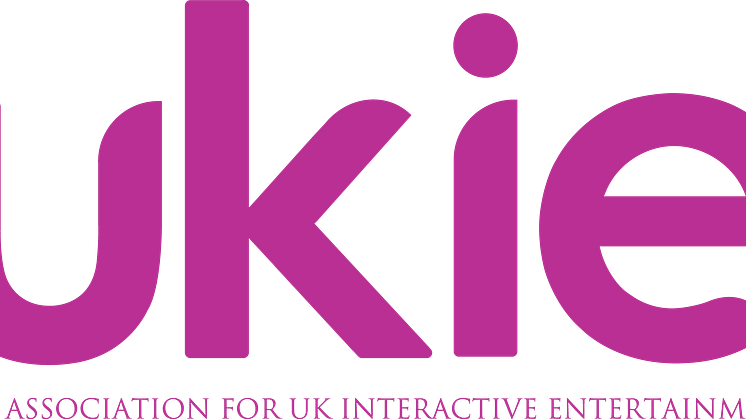
Press release -
ONLINE SAFETY: NEW RESEARCH SHOWS PARENTS ARE CONFIDENT IN KEEPING THEIR CHILDREN SAFE ONLINE AND IN GAMES
- Parents rated quite highly on their confidence to keep themselves safe online and their confidence in their child’s ability in keeping themselves safe
- 85 percent of parents speak to their children about online safety, 71 percent of parents use parental controls on their devices either sometimes or regularly and 70 percent of parents know where to find information on how to play video games safely and responsibly online
- 75 percent of parents believe in the importance of online safety education, with over half using information provided by schools in their households
- But while 55 percent of parents set and enforce time restrictions on use of screen time and online activities, only 19 percent of children reported limits or restrictions – suggesting a disparity between perceptions of safety
Tuesday 18 August - A new study [1] by the UK games trade body Ukie and Digital Schoolhouse, a national computing programme which uses play-based learning to engage the next generation of pupils with the Computing curriculum, has found that parents are confident in the tools, advice and their ability to keep children safe online.
Online Safety: A Parent’s Perspective, a follow up to the 2018 report Online Safety: A Pupil’s Perspective, surveyed 2000+ parents about their approach, and perception of, online safety in the home.
It found that 85 percent of parents speak to their children about the importance of online safety.
It also found that 71 percent of parents use parental controls on their devices - including mobile devices, consoles or PCs - either sometimes or regularly, with 70 percent reporting that they are able to access the information they need about managing online safety for their children.
The research also revealed the importance of schools to the online safety process. 75 percent of parents believe that online safety education is important and over half of parents use online safety information provided by schools.
But while 55 percent of parents set and enforce time restrictions on use of screen time and online activities, such restrictions were reported by 19 percent of children in previous research [2] suggesting a disparity between perceptions of parents and children over screen time limits.
The study also showed there was some difference between the responses of men and women in terms of their confidence with online safety, with 61 percent of men saying they could speak to their children confidently as compared to 51 percent of women.
Finally, while most parents are using advice from school to keep their children safe online, nearly one in four have said that they haven’t been offered any advice by schools at all - emphasising that there are gaps in the provision of online safety information.
Shahneila Saeed, head of education at Ukie said:
“In a digital world, our children’s use of technology continues to shift rapidly, so it’s important that we try our best to navigate this evolving landscape alongside them.
This research shows that parents are taking online safety seriously and putting in place the measures that are right to keep their children and families safe.
But it is also clear that there are gaps in the provision of online safety advice, that there is a gender gap in the confidence in managing online safety and that children and parents have a different perception of what is safe.
We recommend addressing the digital divide by providing more online safety information for parents through school, offering courses in digital literacy for adults and continuing to increase awareness of parental controls and settings.”
----
Download the report here: www.digitalschoolhouse.org.uk/news/new-ukie-research-shows-parents-are-confident-in-keeping-their-children-safe-online-and-in-games
Categories
Notes to editors
[1] Online Safety: A Parent’s Perspective (2020) Based on a Digital Schoolhouse survey of 2006 parents
[2] Online Safety: A Pupil’s Perspective (2018) Based on a Digital Schoolhouse survey of 2304 students
About Digital Schoolhouse
The not-for-profit Digital Schoolhouse programme, together with Nintendo UK, uses play-based learning to engage the next generation of pupils and teachers with the new Computing curriculum. Digital Schoolhouse is delivered by the UK games industry trade body Ukie and is supported by the Department of Digital, Culture, Media and Sport (DCMS).
Website: digitalschoolhouse.org.uk
Twitter: @DigSchoolhouse
Facebook: Digital Schoolhouse
YouTube: www.youtube.com/DigitalSchoolhouse
About Ukie
Ukie is the not for profit trade body for the UK games and interactive entertainment industry. Its mission is to turn the UK into the best place to make, sell and play games in the world.
It represents nearly 500 businesses working across the UK, including game developers, publishers, platforms and service providers, in government. This includes industry advocacy work, managing industry press relations and running trade missions, as well as providing member services.
Ukie also runs a number of initiatives that further support the games ecosystem. This includes education initiatives such as Digital Schoolhouse, the responsible play site www.askaboutgames.com, the Video Game Ambassador’s careers scheme and events such as the London Games Festival.
Website: ukie.org.uk





